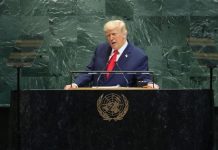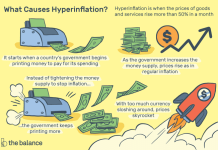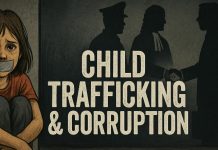Have we become America in name only? Are we willing as Americans to stand and resist the forces destroying our republic?
This is a redux of a program we presented last year well before the 2024 election of President Donald Trump. What has happened since he reassumed the office of President, and how have his policies changed the perspective that we are America in name only?
Are his policies making “America Great Again” or merely creating more chaos in an already chaotic world. Is it unrealistic to expect his administration to bring us back from the brink of a complete collapse of our economy when we now have a national debt in excess of $200 trillion in funded and unfunded liability?
Are we really America in name only, or do we still deserve to be a symbol of freedom for the entire world…
Connecting the Dots Audio
Connecting the Dots Video
…If we are to look at America objectively, it would be very difficult to say that we are more than a small remnant of the great constitutional republic our founders originally crafted. Has this process happened rapidly, or has it been happening subtly over time since our founding?
Likely the answer is both; as we have seen a gradual erosion of our individual liberties since our founding with a rapid acceleration of globalist/collectivist thinking in all major U.S. institutions over the past 75 years.
Within the first decade of our nation George Washington spoke and wrote about the Masonic, Illuminati, and Jocobin forces trying to reshape the direction of our nation in decidedly authoritarian collectivist ways.
Thomas Jefferson who started out in support of the French Jacobins quickly became disenchanted when he realized the depth of evil and bloodshed required to create a communist utopia.
Collectivist thinking was promoted throughout the 19th Century by secular humanist intellectuals like Marx, Hegel and Darwin, but was effectively neutralized by a deeply Christian nation and the successes of American capitalism and free market policies.
With the growing income inequality between rich and poor during the Robber Barons era and the consolidation of powerful monopolies in industry and finance, communist backed labor unionization became popular as a movement during the early 20th Century to guarantee a living wage for the working poor.
John Dewey (the father of progressive education) made collectivist thinking part of the public education system while Marxist Professors kicked out of Hindenburg's Germany, moved the Frankfurt School to Columbia University in 1930 to educate American educators on the “benefits” of communism.
The economic failures of the Great Depression (the 1930s) had a major psychological impact on Americans as millions of Americans lost their personal wealth, jobs, businesses, and their homes.
According to the popular thinking of the time, Franklin Roosevelt became the savior of America through deficit spending and enormous public works projects under a greatly expanded Federal Government. Few realized that Roosevelt's programs were the very reason that the Depression lasted for more than a decade; most thinking him as a hero because of his socialist programs.
Many in my fathers generation became ardent socialists, if not communists, and through a process of gradualism, the colleges and universities became hotbeds of communist propaganda rather than institutions of higher learning.
Communist theorist Antonio Gramsci called this “the long march through the institutions”.
Virtually all major media became agents of leftist ideology during this same timeframe, culminating in very propagandized newsrooms promoting greatly expanded governmental powers.
Following creation of the UN in 1946, a shift from nationalism to globalism became the philosophical guidepost of the elite.
Shadow government groups like The Council on Foreign Relations, Chatham House, the Club of Rome and the Bilderberger Group took a major role in shaping national and international policy, overwhelmingly pointed in a socialist and globalist direction.










